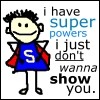How many words should an ebook have?
How many words should an ebook have?
For example if you are writing a non fiction book based on someones life. I know some are quite short, and others the length of a published novel, but what is acceptable? Thanks!It's really up to the author which in this case is you. You should make it long enough to where you cover everything important and interesting, but short enough to where you're not adding words just to make it longer.
It also really depends on the person you write about, and what you feel needs to be covered in order to accurately describe this persons life.- KatrineDalMonteposted 13 years ago
0
At the moment I'm concentrating on writing non-fiction 'ebooks' for Amazon Kindle Store in self-help niche.
While the traditional full length ebooks can be usually anything around 30000 - 50000 words, I prefer to publish shorter mini ebooks/guides of max 15000 words - they can be put together faster, priced lower and in essence attract more buyers.
It really depends on your chosen subject, and the technicalities involved, and the purpose of your book. Hi Nell... depends on the subject really. The ones I have written for example in my 7 book "Quiet Reflections" are 20,000 words approximately.
In the other books which are novels they are between the 50,000-60,000 range.
Keep in ind you are the Author and it allows you to determine the amount. From experience the shorter stories are priced less and attract more readers but there are also the avid readers seeking longer works.
Hope this helps... Blessings and Hugs as always from Canada
RollyLook at it this way, in a cyber-sense: If you compare a detailed online article equalling a "page" that averages around 750 words (250 words being very small, 500 is usually barely enough, while 750 words are normal and anything over a thousand words is being fairly elaborate), then figure up how many pages (not words) you think your eBook should have within its chapters (if it has any), and you'll have a better idea. Let's say you are going for a 50 page eBook with pages that equal a common article of, lets say, 750 words. Well, right there, you'd have a roughly estimated 37,500 word eBook. It makes sense, right?
Personally, I just say write the dang thing and if you can't get at least 10,000 words, go file it under the 'short story' department and may success still come your way; cheers!I have one ready to go with 80,000 but from what I am reading people buying Ebooks now are wanting shorter reads so I think I am going to cut it back but hopefully not take away any of the interest. I would think a romance novel though (which mine is) people would expect to have a bit more than non-fiction. Women haven't changed that much that love a good read.
I have self published two books on LuLu.com and the requirements is that there got to be between 24 and 36 typewritten pages to qualify for publication. I suggest that you try that site if you are interested in writing an ebook.
Depends on the market.
If it is a 'report', you need not write any more than 35 pages.
Proper eBooks, though, should be at least 100 pages. You owe that to your readers.
Perhaps the best answer to this question is: as long as you need to get your story across.I think an e-book should be held to the same standard of a regular book. This means that they are all different lengths, but in general I think most books are at least 100 pages long. If you are writing a novel, it should be novel length, which I define as about 250- 1,000 pages. I would go by the average number of pages of a book in the same genre as the one you are writing. Good luck!
Your asking the wrong question.
Its not about how many words, its about what your using the words for, I have read books that are literally 20 pages and learn't allot more than books that are 200 pages.
Think about the words, the content, the conciseness, these are all the most important factors, not sticking to some arbitrary word limit from someone on HubPages.I suggest e-books should be short and sweet. They shouldn't exceed a word limit of 30,000. This is because reading books on internet strains and tires your eyes.It is deteriorating effects on the delicate eyes. This I have personally felt while reading e-books. So if the book is short then the reader won't feel exhausted while reading but can finish off reading the book enjoyably.
Related Discussions
- 7
How many words are in a 200 page eBook?
by FaithDream 13 years ago
How many words are in a 200 page eBook?I am working on an eBook and was wondering on the length. How many words are contained in an eBook of 200 pages using a 12 pt font?
- 9
Which books sell more, ebooks or paperbacks?
by Joyette Helen Fabien 10 years ago
Which books sell more, ebooks or paperbacks?
- 9
How many words do you need to have a book.
by Brenda Trott, M.Ed 13 years ago
How many words do you need to have a book.i know there is no right answer, but if you bought a book on Kindle, how many words would you expect it to have before you thought you were ripped off?
- 97
Anyone Writing E-Books?
by Elsie Nelson 11 years ago
I am curious what kind of experience e-book authors have had. I am at a crossroads right now and am trying to make some decisions about where to focus my writing. I could focus more on HP or I could do the e-book gig and see what happens. What kind of experiences have people had...
- 8
How long should e-books be?
by Victoria Lynn 13 years ago
How long should e-books be?Should they be about the same length as print books? Shorter? Longer?
- 28
Supercalifragilisticexpialidocious! How Many Words Can Be Spelled ?
by Julianna 15 years ago
This word that all of us know had me thinking , how many words can be spelled out of the largest word ever written? Care to try? Create the words as long as short as you wish but it has to be a word
















